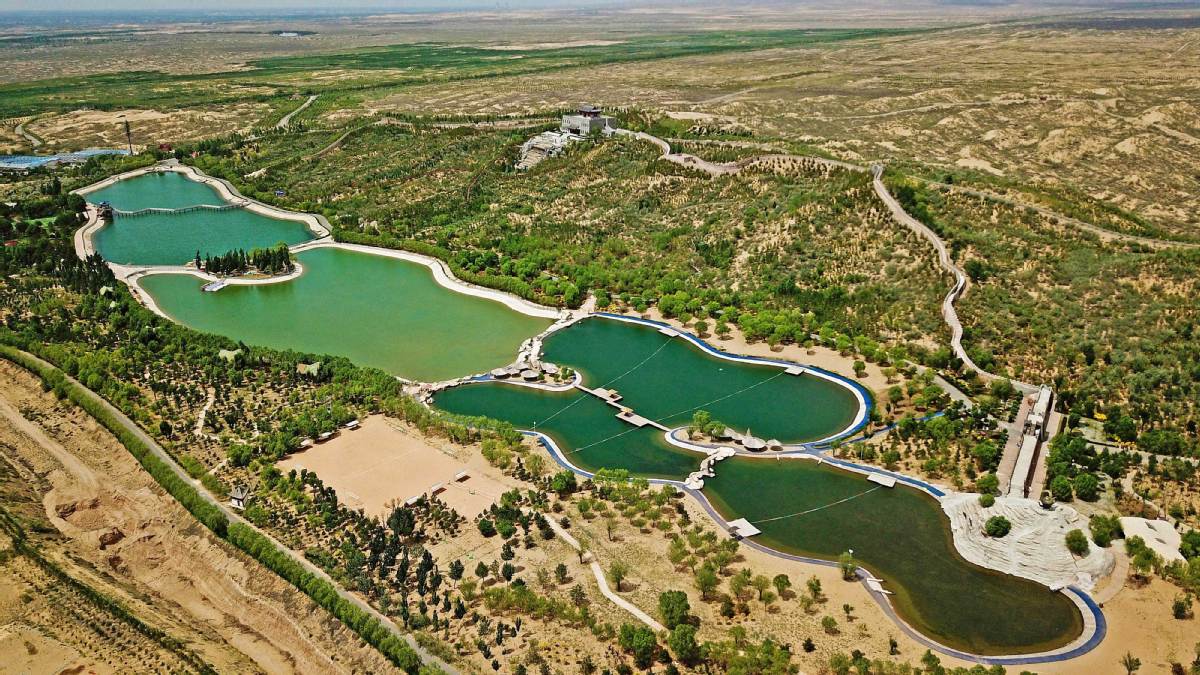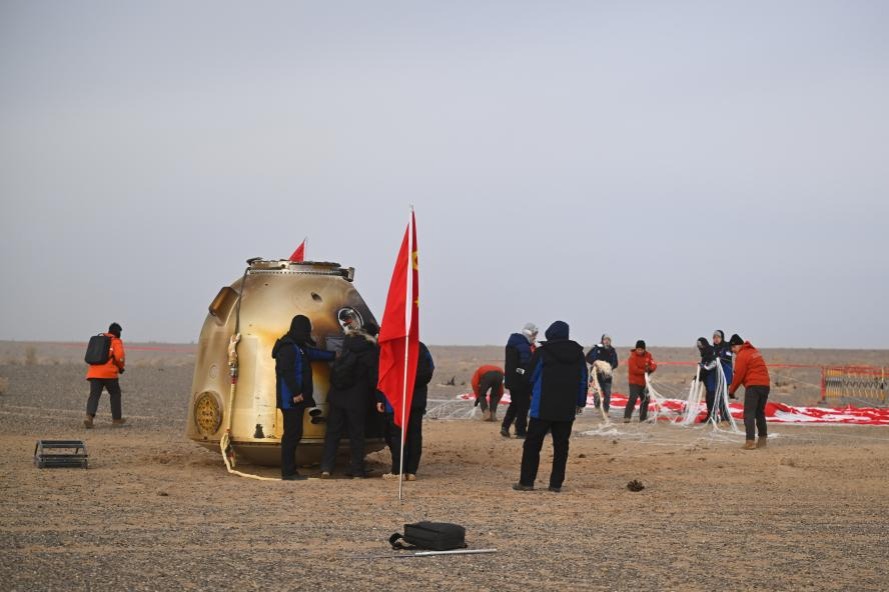'Iron rice bowl' broken to hold back sand


Man can conquer nature, as the Chinese saying goes, and Wang Youde's success in combating sand invasion is one example.
Few people will fail to be astonished by a bird's-eye view of Baijitan National Desert Park in Lingwu county, in northwestern China's Ningxia Hui autonomous region.
A green "great wall" covering almost 1,800 square kilometers on the edge of the Mu Us Desert stands in stark contrast to the rolling dunes of the desert that seem to stretch out into infinity.
Decades of effort by Wang and his colleagues built the "wall" that stops the westward advance of the desert.
Wang's story mirrors the country's reform and opening-up, launched 40 years ago, as his success started with a reform to the old, egalitarian system known as the "iron rice bowl".
Wang, one of 100 people awarded "reform pioneer" medals for their outstanding contributions to the country's progress at a grand gathering in Beijing on Dec 18 to mark the 40th anniversary of reform and opening-up, was born near the Baijitan park in 1953.
The park used to be a State-owned forest farm for sand control, and the havoc wreaked by the sand is Wang's most unforgettable memory.
"My hometown was always plagued with flying sand every spring," he said. "Each morning, we had to remove the sand before we could open the door."
Wang started to work as a well digger at age 18. However, he had to quit four years later as the increasing scarcity of underground water made the work difficult. He then devoted himself to sand control and became a tree planter.
When Wang was appointed deputy head of Baijitan forest farm in 1985, it was on the edge of bankruptcy and 70 percent of the workers had asked for job transfers.
"The rooftops of farm buildings often leaked when it rained," he said. "Rain continued inside, though it had stopped outside. Without vegetables, workers only had millet for food with some chili paste."
After a thorough investigation with all the employees, Wang decided to break the "iron rice bowl" system with a "piece rate" wage mechanism. Many workers, however, opposed the reform as they thought they would lose their benefits.
Some workers called Wang names in public. Once, someone put an ax under his pillow as a way to threaten him to stop the reform.
To promote the reform, Wang introduced the new mechanism in a more flexible manner: the workers could either keep the "iron rice bowl" or opt for a "piece rate".
The reform soon proved to be effective as workers who chose the "piece rate" saw their incomes more than double, which in turn ignited their enthusiasm for work and greatly improved efficiency.
As the reform began well, Wang further developed it by establishing a bidding system in which all employees could bid for construction projects or contract work on the farm.
The natural weather conditions were a hurdle, however, with temperatures of up to 60 C in summer and moving sands that often buried newly planted trees.
Wang also set a good example. In the summer of 1986, he stayed at an orchard construction site for more than 50 days without going back home, even though his home was only 3 kilometers away.
"My father always left home early and came back late," said his son, Wang Lijun.
"One thing that always came back with him was the sand. There was sand on the floor and on the bed. When he used the washing machine, there was also sand in it.
"My mother said he made the desert green, but this resulted in desertification at home."
Wang Youde retired in 2014, but his efforts to control the sands continue. He has leased about 670 hectares of desert wasteland to plant trees, and also established a foundation for sand control.
"For me, every single tree I plant shows my life's value and this makes me happier," he said. "Until I pass on, I will continue fighting with the sand."
- China steps up emergency response as temperatures drop sharply
- Shenzhen leads China's megacities in commuting efficiency
- Shenzhen forms micro-drama industry association
- Former security official expelled from Party for serious violations
- One Chongqing Marathon participant dies due to sudden illness
- Jiangsu schools delay start times to improve student well-being





































